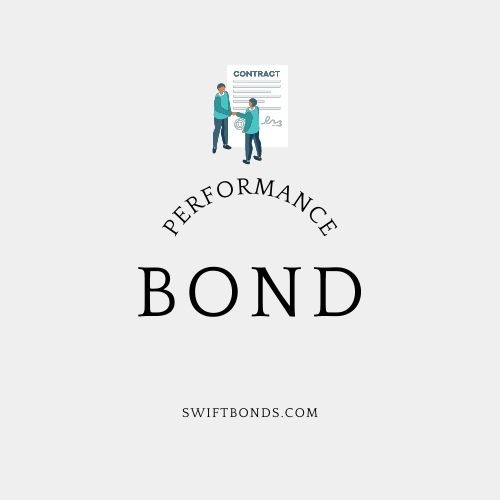You can now apply online for a Performance Bond - it only takes three (3) minutes! (Yep, we timed it.) Click here:
Or you Can download our Express Performance Bond Application (click to download form)
- Complete the form and email to [email protected]
- Be sure to include the Contract and Notice of Award letter (bid specs from the obligee).
- Send the bid results if you have them
What is a Performance Guarantee Agreement?
A performance guarantee agreement is another name for a surety known as a performance bond within a commercial agreement. These are usually given to a construction company when they need to be bonded for a job requiring a . In addition, this contractual agreement is usually granted in conjunction with payment bond. They are normally required for any governmental contract as dictated by the Miller Act. Most states have also passed statutes that require a performance and payment bond in their own states and these laws are known as little miller acts.
 A performance guarantee agreement guarantees that the Obligor (the contractor) will perform according to the terms of the contract. If not, the surety will step in and provide another contractor to finish the job. If they cannot find another contractor to finish the job, then they will pay damages to the Obligee (the owner of the property/project). A performance guarantee agreement ensures the party's obligations are met within a commercial agreement. A payment bond, which is typically issued at the same time as a performance guarantee agreement, assures that the Obligor will pay all subcontractors and vendors (like providers) for the job.
A performance guarantee agreement guarantees that the Obligor (the contractor) will perform according to the terms of the contract. If not, the surety will step in and provide another contractor to finish the job. If they cannot find another contractor to finish the job, then they will pay damages to the Obligee (the owner of the property/project). A performance guarantee agreement ensures the party's obligations are met within a commercial agreement. A payment bond, which is typically issued at the same time as a performance guarantee agreement, assures that the Obligor will pay all subcontractors and vendors (like providers) for the job.
What is a Performance Guarantee Contract?
Get a Performance Guarantee Contract
warranties of performance. A deed guaranteeing the performance of a contractor can be part of a performance guarantee bond.
Another type of true guarantee is when the owner of the construction company provides a guarantee on behalf of the company. This personal guarantee will make sure that the company does the work timely and usually is a good indication that the work product will be of the quality needed. That’s because the owner is now personally invested - even more than just having their company invested.
The final type of performance guarantee is the performance bond. This is oftentimes written in conjunction with a payment bond and is a guaranty that the company will provide the work timely and according to the terms of the contract. However, unlike a guarantee, the performance bond is provided by a third party. This third party (normally an insurance company, like Zurich or AIG) is the one that has underwritten the company. So, if there is a dispute regarding the contract, the owner will contact the surety. If it is a valid dispute, the surety will find another contractor to finish or fix the job. If the surety is unable to do so, it will pay damages to the owner of the job. Performance bonds also serve as a guarantee payment to subcontractors and vendors. The surety will then try and recover those payments, including attorneys fees, costs, etc. from the contractor.
What is the Guarantee Insurance Company?
About the Guarantee Insurance
The Guarantee Insurance is another name a surety bond, such as a payment bond or a performance bond. This type of guarantee can be in one of two ways. The first way is a standard performance bond that we see here in the U.S. These performance surety bonds are guarantees that a company will perform according to an underlying construction contract. In this type of bond, the owner will have assurance from the surety that they will be able to finish the job on time and in the manner described in the contract. Guarantee insurance can ensure a supplier's obligations are met.
This can be compared to a financial guarantee. A financial guarantee does not have an underlying contract that needs to be fulfilled. Instead, the financial guarantee can be called at any point. There does not have to a problem with any underlying agreement. A supplier's parent company may provide a guarantee to ensure compliance with the contract terms.
Discover how does a contract bond work and why it’s essential for your next project!
Learn more on Contractual Obligations Guarantee
Parties to a Performance Guarantee
A performance guarantee is an agreement involving three key parties: the obligor, the obligee, and the surety. The obligor, often a contractor or supplier, is responsible for fulfilling their contractual obligations. The obligee, typically the project owner or beneficiary, is the party protected by the guarantee. Should the obligor fail to perform, the surety, usually an insurance company or bank, steps in to provide the financial guarantee. This arrangement ensures that the project owner is safeguarded against potential losses due to non-performance by the contractor.
How Performance Guarantees Work
A performance guarantee acts as a financial instrument designed to ensure the satisfactory completion of a project or contract. Typically issued by an insurance company or bank on behalf of the contractor or supplier, it provides assurance to the project owner or beneficiary that the contractor will meet their contractual obligations. In the event of non-performance or a breach of contract by the contractor, the beneficiary can claim the performance guarantee to seek compensation for any incurred losses. This mechanism ensures that the project owner is protected and that the contractor is held accountable for their commitments.
Types of Performance Guarantees
Performance guarantees come in various forms, each serving a specific purpose:
- Advance Payment Guarantee: This type of guarantee protects the buyer’s financial interests by ensuring the refund of any advance payments in case the contractor defaults or fails to perform.
- Performance Bond: Commonly issued by an insurance company or bank, this guarantee ensures the satisfactory completion of a project or contract. It provides the project owner with assurance that the contractor will fulfill their obligations.
- Retention Guarantee: This guarantee ensures that the contractor completes the project and addresses any defects or deficiencies within a specified period. It provides additional security to the project owner that the work will meet the agreed standards.
Benefits of Performance Guarantees
Performance guarantees offer numerous benefits to all parties involved:
- Protection for the Project Owner: They safeguard the project owner or beneficiary against the risk of contractor non-performance or default.
- Assurance for the Contractor: Contractors gain confidence that they will be able to complete the project and receive payment.
- Increased Confidence: Project owners or beneficiaries have greater trust in the contractor’s ability to fulfill their contractual obligations.
- Reduced Risk: The risk of contractor non-performance or default is significantly minimized, providing peace of mind to the project owner.
Cost and Duration of a Performance Guarantee
The cost of a performance guarantee varies based on several factors, including the type of guarantee, the size of the project, and the contractor’s creditworthiness. Typically, the cost is a percentage of the contract value, ranging from 1% to 4%. The duration of a performance guarantee also varies but is generally valid for the length of the project or contract. Depending on the terms of the agreement, the guarantee may be renewable or non-renewable, ensuring continuous protection throughout the project’s lifecycle.
Discover how does a contract bond work and why it's essential for your next project!


